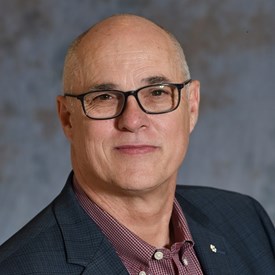The Creme de la Creme of the Science World : A Life Well Spent
The Creme de la Creme of the Science World : A Life Well Spent
 |
| Dr.Michael Rudnicki, Fellow, Royal Society |
"As I became older, I met patients and kids with these terrible diseases including Duchenne muscular dystrophy. The motivation now is to do something positive to impact their lives, and I think this work is pointing in that direction.""This [stem cell research] is really Canada's science. We are world leaders in stem cell research. We punch well above our weight.""This is a true area of strategic strength in Canada. Something all Canadians should be proud of.""Where an individual working in a laboratory can make discoveries that can contribute to human knowledge, this is fundamentally exciting. It is a life well spent.""I am working hard to make my place, but I never dreamed I would be elected to The Royal Society. That is very humbling.""It is a tremendous honour. I am humbled. It gives me goosebumps."Michael Rudnicki, 63, senior scientist director regenerative medicine, Sprott Centre for Stem Cell Research, The Ottawa Hospital Research Institute; scientific director Canadian Stem Cell Network
 |
| The Royal Society in Crane Court, London, 17th Century |
Born
in Ottawa, Dr. Rudnicki was fascinated with Jacques Cousteau's work and
inspired to become a marine biologist. In the end, at university he
decided on biology, then became interested in molecular biology. Ever
since, his career has been devoted to the field of stem cell research.
Research he has pioneered in transforming science's knowledge of muscle
development and regeneration, leading to novel stem cell-based
approaches in the treatment of muscular dystrophy.
This
week the internationally renowned scientist, honoured for his stem cell
research, in particular for Duchenne muscular dystrophy, was inducted
into the charter of The Royal Society, London. The Royal Society is the
oldest scientific academy in continuous existence, its members
representing the world's most eminent scientists, including Sir Isaac
Newton and Charles Darwin. Only a dozen Canadians have been members of
this 362-year-old academy. In the induction ceremony of which Dr.
Rudnicki was a part, four others were Nobel laureates.
 |
| Dreamtime.com |
Some
people with Duchenne muscular dystrophy do not live beyond their 20s, a
disease with no known cure. Duchenne is a genetic disorder of
progressive muscle degeneration and weakness that becomes life-limiting.
Treatment may enable some of its sufferers to live into their 30s.
Untying this Gordian knot of nature's biological blips has led Dr.
Ruckniki to focus his scrutiny and efforts on finding a possible
solution in life-extending therapy, if not a cure.
In
1961 two Canadian scientists -- James Till and Ernest McCulloch -- were
first to demonstrate the existence of stem cells in studying the
effects of radiation on mice bone narrow at the Ontario Cancer Institute
in Toronto. Research now considered a seminal scientific discovery of
the last century, a match in discovery as important to that of
DNA/double helix.
The
Royal Society has its Fellows sign a charter book dating back o 1662.
Annually, about 700 scientists are nominated to The Royal Society. Of
that number around fifty are voted in by members. There have been
roughly 8,000 members since the founding of The Royal Society. There are
1,700 current members listed in that distinguished group of scientists
who have laboured to make the world a better place, among them Albert
Einstein and Stephen Hawking.
"The very first ‘learned society’ meeting on 28 November 1660 followed a lecture at Gresham College by Christopher Wren. Joined by other leading polymaths including Robert Boyle and John Wilkins, the group soon received royal approval, and from 1663 it would be known as 'The Royal Society of London for Improving Natural Knowledge'.""The Royal Society's motto 'Nullius in verba' is taken to mean 'take nobody's word for it'. It is an expression of the determination of Fellows to withstand the domination of authority and to verify all statements by an appeal to facts determined by experiment."The Royal Society

Labels: Scientific Research, The Royal Society

<< Home